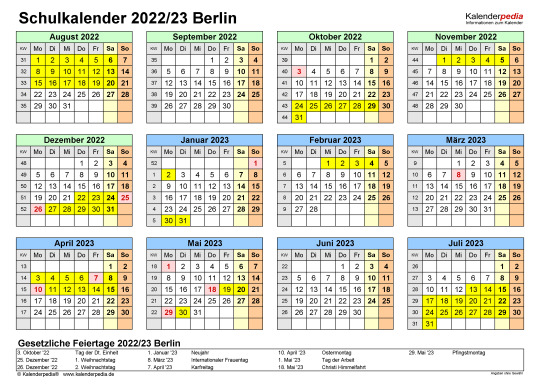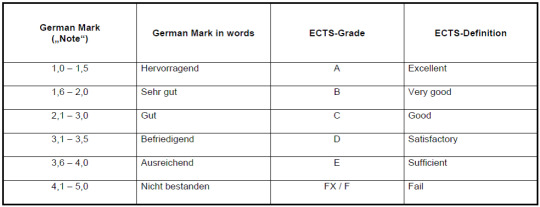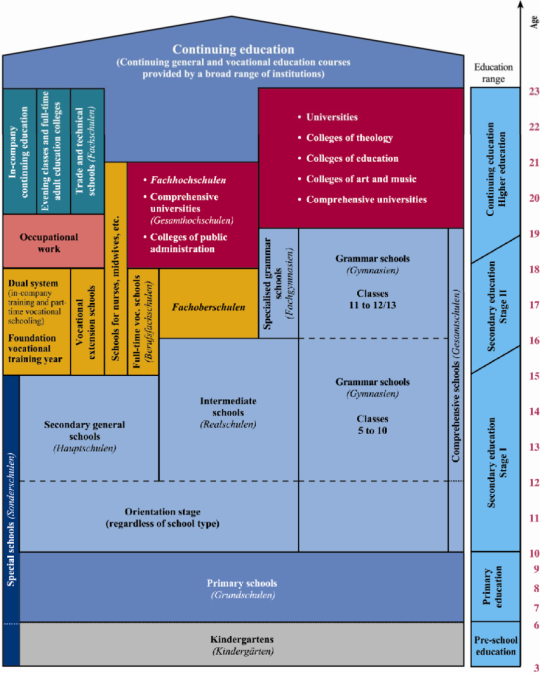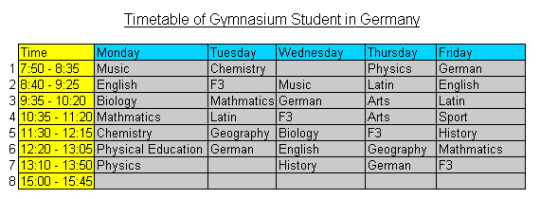#Vocational Training in Germany
Explore tagged Tumblr posts
Text
The Difference Between German Ausbildung and Normal Graduation
In today’s globalized world, education and career opportunities are no longer confined to one’s home country. For Indian students and professionals, pursuing higher education or vocational training abroad has become a popular choice. Among the various options available, Ausbildung in Germany stands out as a unique and highly rewarding pathway. But how does it differ from a normal graduation, and why should Indian candidates consider it? Let’s explore the key differences and the role of spaark overseas in helping Indian candidates secure Ausbildung in Germany.

What is Ausbildung in Germany?
Ausbildung in Germany is a dual vocational training program that combines classroom learning with hands-on work experience. Unlike traditional graduation programs, which focus primarily on theoretical knowledge, Ausbildung emphasizes practical skills and industry-specific training. This makes it an excellent choice for students who want to enter the workforce quickly and gain real-world experience.
In contrast, a normal graduation program in India typically involves three to four years of academic study with limited exposure to practical applications. While graduation provides a strong theoretical foundation, it often lacks the industry-specific skills that employers seek. This is where Ausbildung in Germany bridges the gap, offering a balanced approach to education and employment.
Positive Points About Ausbildung in Germany
Industry-Ready Skills: Ausbildung programs are designed in collaboration with industries, ensuring that students acquire skills that are directly applicable to the job market. Whether it’s IT Ausbildung in Germany, Nursing Ausbildung in Germany, or other vocational fields, candidates graduate with a competitive edge.
Earn While You Learn: One of the most attractive features of Ausbildung in Germany is that students receive a stipend during their training. This financial support helps cover living expenses and reduces the burden of education costs.
High Employment Rates: Germany faces a skilled labor shortage, especially in sectors like healthcare, IT, and engineering. Completing an Ausbildung program significantly increases the chances of securing German employment.
Global Recognition: Vocational training in Germany is highly respected worldwide. Candidates who complete an Ausbildung in Germany are valued for their practical expertise and adaptability.
Pathway to Permanent Residency: Germany offers favorable immigration policies for skilled workers. Completing an Ausbildung program can be a stepping stone to obtaining a work visa and eventually permanent residency.
How spaark Overseas Helps Indian Candidates
spaark overseas is a leading Indian recruiting company that specializes in connecting Indian candidates with overseas internship opportunities and vocational training programs in Germany. As a pioneer in the healthcare sector, Ausbildung programs, and teaching job programs, spaark overseas has established itself as a trusted partner for Indian students and professionals.
Here’s how spaark overseas supports Indian candidates:
Direct Recruitment: spaark overseas recruits Indian candidates directly from India for various programs, including Ausbildung in Germany, Internship in Germany, and Vocational Internship opportunities.
End-to-End Guidance: From selecting the right program to visa processing and relocation, spaark overseas provides comprehensive support at every step.
Industry Connections: With strong ties to German employers and training institutions, spaark overseas ensures that candidates are placed in reputable organizations.
Tailored Programs: Whether it’s IT Ausbildung in Germany, Nursing Ausbildung in Germany, or other vocational training programs, spaark overseas offers customized solutions to match candidates’ career goals.
Affordable Services: spaark overseas is committed to making overseas internship opportunities and vocational training accessible to Indian candidates by offering competitive fees and financial guidance.
Why Choose Ausbildung in Germany Over Indian Graduation?
While Indian graduation programs provide a solid academic foundation, they often fall short in preparing students for the demands of the global job market. Ausbildung in Germany, on the other hand, offers a perfect blend of theory and practice, making candidates job-ready from day one. Additionally, the opportunity to earn a stipend, gain international exposure, and secure German employment makes Ausbildung a more attractive option for many.
About spaark overseas
spaark overseas is a trusted name in the field of international education and career opportunities. With a focus on Ausbildung in Germany, Internship in Germany, and other Vocational training in Germany, spaark overseas has helped countless Indian candidates achieve their dreams of working and studying abroad. Their expertise in the healthcare sector, IT, and teaching job programs makes them a one-stop solution for aspiring professionals.
Website: For more information about their services and programs, visit www.spaarkoverseas.com.
Instagram Profile: Stay updated with the latest opportunities and success stories by following them on Instagram at spaarkoverseasofficial.
YouTube Channel: Explore informative videos and testimonials on their YouTube channel at spaarkoverseasofficial.
Conclusion
For Indian candidates seeking a practical and rewarding career path, Ausbildung in Germany is an excellent choice. It not only equips them with industry-specific skills but also opens doors to global opportunities. With the support of spaark overseas, the process of securing an Ausbildung in Germany or an Internship in Germany becomes seamless and stress-free.
Whether you’re interested in IT Ausbildung in Germany, Nursing Ausbildung in Germany, or other Vocational training in Germany, spaark overseas is your gateway to a successful international career. Explore the overseas internship opportunities today and take the first step toward a brighter future!
By choosing spaark overseas, you’re not just investing in education; you’re investing in a lifetime of opportunities. Let spaark overseas guide you on your journey to German employment and beyond. Visit their website, follow them on Instagram, and subscribe to their YouTube channel to stay informed and inspired!
#German employment#spaark overseas#overseas internship opportunities#Vocational training in Germany#IT Ausbildung in Germany#Nursing Ausbildung in Germany#Internship in Germany
0 notes
Text
Ausbildung in Germany Consultant in Delhi

youtube
https://abroadup.in/ausbildung-in-germany-consultant-in-delhi/
Ausbildung is the term used in Germany to describe apprenticeship or vocational training programs that blend classroom instruction with real-world work experience. Usually, industries including business, engineering, healthcare, IT, and skilled professions offer these programs. Ausbildung programs are a significant component of the German educational system, and they are open to international students as well.
1. Types of Ausbildung/Vocational Programs • Dual systems: This is the most popular arrangement, in which you attend a vocational school (Berufsschule) for the theoretical portion of your training while working part-time at a company. • Full-time education: Certain programs are available at specialised schools with a greater integration of academic and practical instruction.
2.Duration of Ausbildung/Vocational Programs
An Ausbildung program normally lasts two to three and a half years. The length of time is determined by the company, the subject of study, and whether the student has prior qualifications.
3. Eligibility for International Students to pursue Ausbildung programs:
International students can apply for Ausbildung programs, but they must meet certain requirements:
• Visa Requirements: In order to remain in Germany for the duration of the Ausbildung program, international students from non-EU nations typically require a vocational training visa, also known as an Ausbildung visa. Visas are not required for students from EU/EEA nations.
• Language competence: Depending on the profession, several Ausbildung programs call for expertise in German at the B1 or B2 level. English-language programs are less common, but they might exist.
• Educational Requirements: A secondary school diploma or its equivalent that is accepted in Germany is required of international students. Prior qualifications could be necessary for some occupations.
4. Application Process
• Find a Program: Students can use websites such as Make it in Germany, Jobbörse der Bundesagentur für Arbeit, or the websites of specific companies like to look for available Ausbildung/ vocational programs.
• Apply Straight to Companies: After deciding on a Ausbildung / vocational program, submit an application straight to the organisations providing the instruction. Typically, the procedure entails sending in your motivation letter, CV, and documentation of your qualifications.
• Interview Process: When your application be accepted, you will most likely get an invitation to an interview, during which you might be required to take an aptitude test.
• Acceptance & Visa: After being accepted, you can start your Ausbildung by applying for a visa, if necessary.
5. Expenses inAusbildung
• While most ausbildung programs are free for students, there may be extra fees for supplies, transportation, and other personal expenses. • During training, students typically receive a wage (called an Ausbildungsvergütung) to help with living expenses. The monthly compensation might range from €800 to €1,200, depending on the company and industry.
6. Next Stepafter Ausbildung
• Graduates of the Ausbildung program are certified to work in the field for which they have received training. Both the EU and Germany recognise the qualification. • Many students who complete their Ausbildung are offered full-time jobs at the company where they received their training, or they may look for work elsewhere in Germany. •After completing their Ausbildung, graduates can also apply for a residence visa to remain and work in Germany. For a maximum of 18 months, non-EU students may be given a residence visa to search for employment in their field.
7. Job Opportunities for International Students after the Ausbildung/Vocational Program-
• International students who have German language proficiency and credentials accepted by the German system stand an excellent chance of finding employment in Germany, which has a high demand for skilled workers, particularly in industries like engineering, IT, healthcare, and skilled trades.
• After finishing their degrees, many international students move from Ausbildung to permanent employment in Germany.
8. Helpful Resources
• Make it in Germany:The official website for foreign workers that provides details about living in Germany, employment opportunities, and visa requirements.
• Federal Employment Agency (Bundesagentur für Arbeit):Provides career counselling and a job search portal.
The German Academic Exchange Service, or DAAD, offers details on how to work and study in Germany.
For language instruction, use AbroadUp who has well qualified and experienced German trainers.
#Ausbildung in Germany#Ausbildung#Vocational Training#Vocational Training in Germany#Ausbildung Consultants in Delhi#Ausbildung Consultant#study abroad#education#languages#german#studyingermany#germanvisa#germany#ausbildungingermany#Youtube
0 notes
Text
Understanding Tarifverträge and How They Impact Your Career Growth
If you’re working in Germany or planning to start your career here, there’s one concept you’ll want to understand early on: Tarifverträge (collective agreements). While the word might sound a bit intimidating at first, it’s actually a key to unlocking better working conditions, more predictable career paths, and even higher earnings. Whether you’re fresh out of university, switching careers, or…

View On WordPress
#Career Growth#career planning#career tips#collective agreements#Employee Benefits#Employee Rights#fair wages#German work culture#Germany labor laws#industry standards#job advancement#job security#labor unions#Professional Development#Salary Negotiation#Tarifverträge#unions in Germany#vocational training#working hours#workplace equality
0 notes
Text
Guide to Securing Ausbildung Contracts in 2025
How to Obtain an Ausbildung Contract in Mangelberufe for 2025 If you’re considering a career in one of the Mangelberufe (occupations with a shortage of qualified professionals) in Germany, securing an Ausbildung (vocational training) contract is a crucial step. Here’s a brief guide on how to navigate this process for 2025. Steps to Get Your Ausbildung Contract Research Mangelberufe:…
0 notes
Text
Ausbildung is a German word which means “Vocational Training (or) Apprenticeship”. It is a structured vocational training program that combines classroom based theoretical education with on-the-job training to gain hands-on experience. Unlike traditional educational format which focuses more on texts and tests, Ausbildung covers both the academic side and the professional side which results in preparing the future professionals.
0 notes
Text

Eligibility Criteria for Pursuing Vocational Education Courses in Germany
When aspiring to study vocational courses in Germany, understanding and meeting specific eligibility criteria is crucial for a successful application and academic journey.
Educational Qualifications: To enroll in vocational learning courses, candidates typically need a completed secondary education or an equivalent qualification. Specific course requirements may vary, and it’s essential to verify the prerequisites for the chosen program.
Language Proficiency: Proficiency in the German language is often a prerequisite for vocational education courses conducted in German. Language proficiency tests like the TestDaF may be required. For courses in English, proficiency in the language, demonstrated through tests like IELTS or TOEFL, is essential.
Specific Program Requirements: Each vocational training program may have unique prerequisites based on the field of study. Some courses may require specific prior knowledge, skills, or experiences. Prospective students should carefully review the detailed requirements outlined by the chosen institution.
Recognition of Prior Qualifications: Ensure that your previous educational qualifications are recognized in Germany. This recognition process may involve submitting documents to relevant authorities to confirm the equivalence of your qualifications to German standards.
Health Insurance: Health insurance coverage is often a mandatory requirement. Students must provide proof of adequate health insurance for the duration of their studies. German authorities and educational institutions may have specific guidelines regarding health insurance.
Visa Requirements: International students planning to pursue vocational training courses in Germany need to adhere to visa requirements. This includes obtaining a student visa before entering the country and complying with the regulations set by the German authorities.
Financial Means: Demonstrating financial means to support living expenses is essential. This can be done through a blocked account, scholarships, or a formal declaration of financial support. Having adequate funds ensures a smooth stay while undertaking vocational education in
Application Documentation: Prepare a comprehensive application package, including academic transcripts, letters of recommendation, a statement of purpose, and any additional documents specified by the chosen institution. Accurate and complete documentation is crucial for a successful application for vocational training.
0 notes
Text
Ho bisogno del vostro aiuto, quindi vi chiedo un cortese reblog, e se volete, aiutarmi su altre piattaforme al di fuori di Tumblr, dove ve pare, tutto il materiale riportato qui è pubblico. Please, I need your help to "spread the word", so thank you in advance for your kind reblog, even on other platforms, you can share with no restrictions.
Hi,
SAP, my company, is searching for students that are willing to get a Bachelor in Computer Science, called VT/STAR, Vocational Training. I'm adding here all the details and the links, but let me recap why it's a great thing for you.
The Bachelor is a 3-years program and you get paid while you study!!! First year, 1.300 EUR per month, then 1.450, and finally 1.600 EUR.
You have full access to all SAP facilities in the Campus, like the canteen, the sport gym and many other social places, with no costs on your side.
The Vocational Program is intended to hire young people, so once you complete your Bachelor, you pass the exams, the chances are quite high to be hired in SAP and start your career there.
The whole program is paid 100% by SAP. In detail:
this is not for German students, this is for any EU non-German student that is willing to start a Bachelor program intended to hire a future developer/data scientist/AI expert. For any EU citizen, this Bachelor program has no costs on your side, you just come and start.
for any non-EU citizen, you're charged for a one-time-only 1.500 EUR entry fee, and that's it.
Just to be transparent, the company does not cover any costs due to the relocation to Walldorf, Germany, those are on you.
The Bachelor start on September, 1st, every year, you need to go through an interview and pass an entry test, there's no deadline for your application, but if you apply once the program has already started and you pass it, you'll be in the line for the next year automatically.
You can read all the details in the link below, I'm just rephrasing two of the points you'll read there.
Excellent written and spoken English => no, you just need the English required to study a STEM discipline, we don't need any future Shakespeare, you don't need to bring any English certification, you'll prove your knowledge at the interview, that's it. No German language is required!
Programming skills in at least one programming language => you don't need to be a senior, you don't need to be an expert, you just need to have some basic knowledge about what coding means, what is OOP, and some other basic computer programming concepts. If you have ever written a simple program on your own, I mean, something on the educational level, chances are that you can fit the program.


Here you can find all the information you need:
And here you can apply for it:
In case you need any other detail or you have more questions, please write me a message.
Good luck! :)
56 notes
·
View notes
Note
Hey Cronivac Support,
I dont trust myself with the settings so i am asking you. I am Half German and half Moroccan, and I look German af. Brown hair, brown eyes, big smile and a really white skin. I am thinking what would happen if my appearance were based on my Moroccan genes.
Can you help me out?
Brother, chill out! Have a shisha. Just ignore that there's German shit in your body. Your dick is circumcised. You pray at least once or twice a day. Friday you also go to the mosque… It doesn't matter if there are still German genes in you.
Thursday morning. You will survive the last school year at the Gymnasium. What comes after that, you don't know yet. Something with languages might make sense. Your mother tongues are Arabic, German and French. And you are actually quite good in English and Spanish at school. But you also enjoy science. First lesson today is chemistry. Stoichiometry. Actually very interesting. But somehow you have more and more problems to understand your teacher. When he approaches you, you start to stammer. You can't think of the right words. "Youssef, you are welcome to answer in English, if that is easier for you." You sigh in relief. German is really a difficult language. And even though you have a German grandmother, German was never spoken much at home….
During the break, you hang out with your brothers. Talk about soccer, cars, the usual stuff. Smoke an e-cigarette to go with it. And you make an appointment for the afternoon at the gym. Then it's off to the workshop at the vocational school. Metalwork. Hey, you're not training to be a car mechanic so you can mill toys out of metal plates. You want to become a car tuner. And create really hot cars. Your vocational school teacher is from Syria. Fled a few years ago. He speaks much better German than you do. You've only been in Europe for two years. Your mother had the French and the Moroccan passport, so you could immigrate relatively easily. But you didn't understand why you had to move to Germany. Some of your pals now live in Marseille. You would have found that cool, too… But Stuttgart? Just because your father found a good job as an engineer here at Mercedes? Anyway, you're a fighter, you'll survive Swabia.
Lunch is at the snack bar of a former colleague of your father. He has saved up enough money on the assembly line for his own snack bar. And now he makes the best falaffels in town. On weekends, you help out a little. You can always use the extra money. And that way you also get the food cheaper. Since you've been in training, you no longer get pocket money from your parents. You are the eldest son, you now have to do your share to feed the family. And if you are the first to have a vocational qualification here, your chances of getting a permanent right to stay are also the best. If only it weren't for this terrible language…

Gym, auto repair shop, vocational school, Gym…. Your daily routine is somehow always the same. Your boss is also a Muslim, from Turkey, so you have tomorrow afternoon off to go to the mosque. But you also have to work on Saturday. But you are grateful that you have the job. And you can afford your car and the gym. It was not easy to come to Europe. It cost your parents almost all their savings. And now it's your damn duty to succeed and support your family. For that you learn to be a car mechanic, for that you sell falaffel on weekends. That's why you mop the gym floors and clean the toilets at night. You even study German for that. However, this has already brought you a few thousand followers. Your picture from the last workout has 800 likes after just half an hour. Let's see, maybe new opportunities to become rich and famous will develop. You have the right gene pool!
Pic of your latest workout found @tufas
209 notes
·
View notes
Text

"We still have and will have what the Defense Department describes as institutional racism. [Discrimination] happens. It's there. In many cases, it's inadvertent. In some cases, it's deliberate. We're never going to eliminate racism in the Army. As long as we do everything to reduce it, we're making some legitimate progress."
Another biography that appears to be temporarily unlocatable on official Dept. of Defense websites, is the remarkable life and career of Maj. Gen. Charles Calvin Rogers. Born in 1929 West Virginia as the youngest of five children, Charles's father Clyde Rogers was himself a World War I veteran. Rogers excelled academically at Dubois High School in Claremont, WV --not only earning honor roll and being elected class president, but also played starter quarterback his senior year. He took an ROTC Army commission at West Virginia State College (now University) in 1951.
His Army career was marked by a number of firsts --he graduated from the Army Command and General Staff College as a major, and served several tours in Germany, at a time when much of the Army was still largely segregated despite Executive Order #9981 (see Lessons #68 and #132 in this series for more on this directive). At one point Rogers became disillusioned with a systematic pattern of blocks to his Army career path, and went as far as to submit his resignation in 1954, but his commanding officer did not accept it, insisting that Rogers had in him the makings of a good commanding officer. After two successive smaller battery commands, in 1967 Rogers was promoted to Captain and was assigned leadership of the 1st Battalion, 5th Artillery, 1st Infantry Division. This 300-man battalion deployed to Vietnam later that year.
On October 31, 1968, now-Lt. Col. Rogers was in command of his artillery unit in Southern Vietnam close to the Cambodian border and the Ho Chi Minh trail. Notified of enemy activity in the area, he ordered his unit to hold fire. However only a few hours later (technically November 1), the NVA opened fire on Rogers's battalion. Rogers directed the counterattack, and his troops returned fire with howitzers. Rogers was himself wounded twice in this action but he nonetheless led a return ground assault, driving back NVA troops and giving the Americans time to restore a defensive line. Another enemy attack breached another part of the line, and Rogers redirected his troops' artillery fire and rallied to defend another howitzer position. Rogers was then wounded a third time, taking him out of the fight but still in a position to relay orders. Ultimately the enemy retreated with heavy losses. U.S. forces had themselves lost 12 men with 68 injured, but were able to resecure the base. Rogers was treated and returned to the U.S. in 1969. In 1970 President Nixon presented Lt. Col. Rogers with the Medal of Honor in a White House ceremony, the then-highest-ranking Black soldier in the U.S. military to receive this honor.
Rogers would later graduate from the Army War College in 1971, earning a Master's in vocational/educational guidance. He assumed several more command positions while in Germany, among them the 42nd Field Artillery Group, and later headed up the Infantry Basic Combat Training Center at Fort Lewis in Washington state. In 1976 he served as deputy chief of staff for Army ROTC. He finally retired in 1984, after 32 years of Army service. As a civilian he opted to remain in Germany (principally in Heidelberg) to support his troops, but now as an ordained Baptist minister. He died in 1990 and is buried at Arlington National Cemetery. In 2013 the Army Maj. Gen. Charles C. Rogers Memorial Bridge was dedicated in Cotton Hill, West Virginia.
#black lives matter#black history#civil rights#department of defense#us army#arlington cemetery#vietnam#medal of honor#operation toan thang ii#censorship#do not comply in advance#teachtruth#showup#dothework
4 notes
·
View notes
Text
Deutschribing Germany
Education
Education in Germany is free and compulsory between ages six and sixteen. States (Länder) are largely responsible for education, with the federal government playing a minor role.
Types of schools
The vast majority of children attend state schools, but there are private schools (Ersatzschulen) as well. The latter have very low tuition fees and are also subsidized by the state, which effectively makes them privately-run schools funded by the state. Some are run by religious groups.
School terms
The school year is divided into two terms (from August to January and from February to July) and starts after the summer break, which differs from state to state but usually finishes in mid/end-August. Children have twelve weeks of vacation in addition to public holidays. Exact dates differ between states, but there are generally six weeks of summer vacation, two around Christmas, two around Easter, and two in the fall during the harvest season, since farmers used to need their children for field work.

Grades
The German grading system is as follows, from highest to lowest: sehr gut (1.0–1.5), gut (1.6–2.5), befriedigend (2.6–3.5), ausreichend (3.6–4.0), and nicht bestanden (4.1–5.0). The minimum to pass is four.

Levels

Preschool (Kindergarten)
Preschool education is neither mandatory nor free. Children between the ages of 2 and 6 attend Kindertagesstätte (Kita, “children’s daycare centers”). Many Kitas follow a certain educational approach, such as Montessori or Reggio Emilia.
Primary education (Primarstufe)
Primary education takes place in Grundschulen and generally lasts four years, from��6 to 10 years old. In Berlin and Brandenburg, it lasts six years.
Students are typically taught art, a foreign language (English or French), general studies (natural and social science), German, math, music, physical education, and religion or ethics.
Secondary education (Sekundarstufe)
Secondary education can take place in any of the following schools:
Gymnasium (grammar school) until grade 12 or 13 (ages 10–11 to 17–18/18–19), with Abitur as exit exam to qualify for university
Realschule (intermediate school) until grade 10 (ages 10–11 to 15–16), with Realschulabschluss
Hauptschule (secondary general school) until grade 9 or 10 (ages 10–11 to 14–15/15–16), with Hauptschulabschluss
Gesamtschule (comprehensive school) until grade 10 or 12/13 (ages 10–11 to 15–16 or 17–18/18–19)
The Gymnasium provides in-depth general education for university studies. Hauptschulen teach basic general education leading to vocational school or university entrance qualification. Realschule offers more extensive education than Hauptschule, leading to a vocational or university entrance qualification. A Gesamtschule combines all the aforementioned schools.
There are about twelve compulsory subjects in every grade: biology, chemistry, civics/social/political studies, up to three foreign languages, geography, German, history, math, music, physical education, physics, religion/ethics, and visual arts.

(F3 means Fremdsprache 3 [third foreign language], which is usually French or Spanish)
In grades 11–12/13, each student majors in two or three subjects (Leistungskurse), in which there are usually five lessons per week. The other subjects (Grundkurse) are usually taught three times a week.
Vocational training (Berufsbildung)
Vocational training lasts between two and three and a half years and can take place in any of the following types of school:
Berufsschule (vocational school): the standard type of vocational school, it prepares students for further vocational education or for a job in a profession. Apprentices attend school twice a week and spend the rest of the week working at a company, so they gain knowledge of theory and practice.
Berufsfachschule: similar to Berufsschule, it is aimed at people who want to study specific subjects, such as nursing or occupational therapy.
Fachoberschule (vocational high school): students who have obtained a Realschulabschluss or Hauptschulabschluss can attend a Fachoberschule, where they will specialize themselves in technology, economy, or administration and management, among other subjects. After completing the program, they can study for a university degree after passing the Abitur.
Berufsoberschule (upper vocational school): those who want to attend one need to have graduated from a Berufsschule. It provides in-depth education and training.
Higher education (Tertiärbereich)
To attend university, students need to pass the Abitur exams, of which at least one is oral. They are tested on four or five subjects, including their two or three Leistungskurse and two or three Grundkurse (German, math, and the first foreign language). All knowledge areas must be covered, including language, literature and the arts; social sciences; math, natural sciences and technology, and sports. Each semester of a subject studied in the final two years of Gymnasium yields up to fifteen points, where advanced courses may count double and final examinations count quadruple.
There are 380 universities in Germany, of which 114 are private. Public universities charge fees of around €150–350 per semester, which often include the cost of public transportation. Tertiary education institutions are classified into Universität or Hochschule. The former term is reserved for those which have the right to confer doctorates, in a similar distinction to universities and colleges in the United States. Fachhochschulen (Universities of Applied Sciences) are a type of Hochschule that concentrates on applied science and has a more practical profile with a focus on employability.
There are three types of admissions procedures for degree programs:
Free admissions: every applicant who fulfills the requirements is admitted. This is usually the case in programs in which many students quit, such as engineering, mathematics, or physics.
Local admission restrictions: only a limited number of places are available and students are admitting according to numerus clausus, whose criteria vary depending on the institution and the program but generally include the final grade of the Abitur, a weighted grade average that increases the weight of relevant school subjects, interviews, motivation letters, and/or letters of recommendation.
Nationwide admission restrictions: to study dentistry, medicine, pharmacy, or veterinary medicine, there is a nationwide numerus clausus in which applications are handled centrally for all universities.
There are three official university degrees: Bachelor (bachelor’s degree) takes three years to complete, Master (master’s degree) lasts two years, and Doktorat (doctoral degree or PhD) takes between two and five years.
Students can usually choose freely from all courses offered by the university, but all bachelor’s degree programs require a number of particular compulsory courses in the field of the study program.
62 notes
·
View notes
Text
Business for Sale in Germany: A Smart Move for Strategic Investors in 2025

Germany stands as Europe's economic engine, offering unmatched infrastructure, financial stability, and an innovation-driven economy. If you’re planning to expand your portfolio or relocate for business, looking into a business for sale in Germany could be the most strategic investment you make in 2025.
From small family-owned enterprises to scalable tech startups, Germany offers incredible diversity for global entrepreneurs.
Why Choose Germany for Business Acquisition?
1. Robust Economic Performance
Germany is Europe’s largest economy and the fourth-largest globally. It remains a world leader in manufacturing, automotive, logistics, and renewable energy.
2. Supportive Business Environment
Germany offers:
Access to EU markets
Strong intellectual property protection
World-class transport and logistics
Government funding for innovation and SMEs
3. Skilled Workforce
With a deep talent pool and strong vocational training systems, Germany makes it easy to hire competent, qualified employees.
Top Cities to Consider
Berlin: A startup magnet with creative and tech ecosystems
Munich: Finance, biotech, and advanced manufacturing hub
Hamburg: Logistics and port-based businesses
Stuttgart: Automotive and engineering excellence
Types of Businesses in Demand
Industrial suppliers and manufacturers
E-commerce and software firms
Automotive and transport services
Cafés and specialty restaurants
Green energy startups and consultancies
Explore listings for a business for sale in Germany that offer detailed revenue insights, asset breakdowns, and seller support.
Legal and Operational Considerations
Foreign Ownership: No citizenship requirement to buy a business
Taxation: Understand German VAT, corporate tax, and double taxation treaties
Licensing: Some sectors require industry-specific permits
Language: Consider hiring bilingual legal advisors
Frequently Asked Questions
Q: Can foreigners buy businesses in Germany? A: Yes, there are no restrictions on foreign ownership. However, you may need a visa or residency to operate it.
Q: Do I need to know German? A: While not mandatory, speaking German or hiring bilingual staff makes operations smoother.
Q: How long does the business transfer take? A: On average, 3–6 months, depending on due diligence and regulatory steps.
Q: Is financing available? A: Yes, local banks and international lenders offer financing options, especially for asset-backed purchases.
📌 Looking to step into one of Europe’s strongest economies? Begin your journey by exploring your ideal business for sale in Germany on World Businesses for sale.
🎥 Watch international investor success stories on our YouTube Channel to learn what’s working right now.
2 notes
·
View notes
Text





Ausbildung is the term used in Germany to describe apprenticeship or vocational training programs that blend classroom instruction with real-world work experience. Usually, industries including business, engineering, healthcare, IT, and skilled professions offer these programs. Ausbildung programs are a significant component of the German educational system, and they are open to international students as well.
#study abroad#education#languages#german#studyingermany#germanvisa#germany#ausbildung#ausbildungingermany#Ausbildung in Germany#Ausbildung#Vocational Training in Germany#Ausbildung Consultants in Delhi#Ausbildung Consultant
1 note
·
View note
Text
youtube
"Everyone fenced in Early Modern Germany, but not everyone was a fencer in the way that the Fechtbucher assume. Athletics were an important part of young mens' upbringing, and the artistic motif of the Children of the Sun depicted those athletics, which included fencing. What was the difference between fencing, and fencing as a vocation?
Adam Franti is the lead instructor of the Lansing Longsword Guild.
If you enjoyed the lecture, please consider buying Adam a coffee: https://ko-fi.com/adamfranti
Interested in having Adam give a lecture for your group? Reach out to LansingLongsword at gmail, or send a message on this channel!"
A great video lecture on the physical culture of the time many of the manuscripts we study in HEMA are from.
For anyone who hasn’t yet seen the following links:
.
.
.
.
Some advice on how to start studying the sources generally can be found in these older posts
.
.
.
.
Remember to check out A Guide to Starting a Liberation Martial Arts Gym as it may help with your own club/gym/dojo/school culture and approach.Check out their curriculum too.
.
.
.
.
Fear is the Mind Killer: How to Build a Training Culture that Fosters Strength and Resilience by Kajetan Sadowski may be relevant as well.
.
.
.
.
“How We Learn to Move: A Revolution in the Way We Coach & Practice Sports Skills” by Rob Gray as well as this post that goes over the basics of his constraints lead, ecological approach.
.
.
.
.
Another useful book to check out is The Theory and Practice of Historical European Martial Arts (while about HEMA, a lot of it is applicable to other historical martial arts clubs dealing with research and recreation of old fighting systems).
.
.
.
.
Trauma informed coaching and why it matters
.
.
.
.
Look at the previous posts in relation to running and cardio to learn how that relates to historical fencing.
.
.
.
.
Why having a systematic approach to training can be beneficial
.
.
.
.
Why we may not want one attack 10 000 times, nor 10 000 attacks done once, but a third option.
.
.
.
.
How consent and opting in function and why it matters.
.
.
.
.
More on tactics in fencing
.
.
.
.
Open vs closed skills
.
.
.
.
The three primary factors to safety within historical fencing
.
.
.
.
Worth checking out are this blogs tags on pedagogy and teaching for other related useful posts.
.
.
.
.
And if you train any weapon based form of historical fencing check out the ‘HEMA game archive’ where you can find a plethora of different drills, focused sparring and game options to use for effective, useful and fun training.
.
.
.
.
Check out the cool hemabookshelf facsimile project.
.
.
.
.
For more on how to use youtube content for learning historical fencing I suggest checking out these older posts on the concept of video study of sparring and tournament footage.
.
.
.
.
Consider getting some patches of this sort or these cool rashguards to show support for good causes or a t-shirt like to send a good message while at training.
19 notes
·
View notes
Note
Hi! Sara from Arizona! I was just curious to know if Germany has good horseshoers there? I mean is there a standard that practictioners of that trade must adhere to? Here, where I live, the shoers are all 6 week wonders, and I'll tell you that a blind caveman could do a better job! Every pastern is at a different angle, and too much toe is left on, while the heels are practically sheared off. It's terrible! I was just curious to find out whether this is just a local, national, or world-wide phenomenon? Thanks. Cheers!
I don't have a horse, so how would I know? I currently live and have lived just in some parts of germany, can't speak for the whole country.
As far as I'm aware there are good and bad ones depending on the region. Some might say there are only bad ones around. Well, the time till you change the irons depends on the horse, no? I mean I heard people talk about a 6 week rhythym but it is not a (no pun intended) 'one shoe fits all'.
Quick google search: The duration of further training to become a farrier in germany is around 2.5 years full-time and is uniformly regulated nationwide in accordance with the Farriery Act and the Farriery Ordinance. Already completed 2-3 year vocational training (in metal crafts) is a basic requirement for this. At the end there is a state-certified final examination.
Many requirements and laws, you see. Our farriers seem to work at a very high level of quality.
2 notes
·
View notes
Text
It occurs to me I haven’t updated the internet on my job situation yet.
Well, in short, I have a new job, starting August.
It’s not the one I applied for.
It is actually the one I wanted originally, taking over the team lead where I’m at now when my team lead retires at the end of July, which I didn’t apply for because HR cut it from 100% to 50%. Well, turns out that was a stupid idea (we warned them), they didn’t get many decent applications, the interviews that did take place all didn’t go well, everybody panicked, and HR did an about-face, dialled the position back up to 100%, and I got offered the job. As in, I don’t even have to apply and go through the process. (I assume this is one advantage of things haven gotten to the point where I started looking at other jobs - they knew I was looking, and if they had insisted on doing another job advertisement, I might already have been gone by the time they got around to even scheduling interviews.)
It wasn’t an easy decision. From what I could tell, the new job would have had a more progressive, innovative environment, which did appeal to me. In the end, I picked the better title. The two jobs are very similar in regards to the tasks, but only one of them is a team lead position. Granted, in a big fish in a small pond kind of way, but still. The other would have me be a... medium-sized fish in a big pond, to stick with the analogy. But team lead will look better on my cv if I want to move on in a couple of years. And it’ll pay better (albeit not much - I did vocational training, but didn’t graduate from university, which will always strongly limit what kind of positions I can be considered for in a country as obsessed with formal qualifications as Germany).
But, yes, same place, new job! And, tbh, the fact that I in the end got a new job without even having to apply for it does amuse me. This is how it should be!
3 notes
·
View notes
Video
youtube
URBEX Guy Clément DEUTSCHLAND | ALTES LAGER | EHEMALIGE FLIEGERSCHULE | ... N'hésites pas à t'abonner à ma chaîne et activer les notifications 🔔pour être informé de mes prochaines explorations et découvertes! Feel free to subscribe my channel and activate notifications 🔔to be aware about my next explorations and discoveries! L’« École technique de l’École allemande de l’aviation commerciale GmbH » a été fondée le 14 aout 1933 par le Ministre de l’aviation du Reich, Hermann Göring. Cette zone est appelée Waldage et depuis le XIXeme siècle, elle est à vocation militaire. Les bâtiments sont construits par la Luftwaffe : l'armée de l'air de la Reichswehr. Le Traité de Versailles, n’autorisait pas l'Allemagne de disposer d'une force aérienne. La base était initialement déguisée en installation civile. Dès 1933, elle comptait déjà 1 500 étudiants, hébergés dans des casernes. L’ensemble des bâtiment ont été édifié en 1933/1934 dans le secret absolu. Le 1er mars 1935, l’armée de l’air allemande prends son « envole » et devient une installation militaire. La Seconde Guerre mondiale épargne le site, et dès le 20 avril 1945, au cours de la bataille de Berlin, l'Armée rouge occupa la garnison et son aérodrome et transforma le site en centre de formation pour les officiers des troupes blindées de chars et de l'artillerie soviétiques. Après le retrait de l'armée soviétique, URSS, le site est à l’abandon… pourtant classé monument historique. The "Technical School of the German Commercial Aviation School GmbH" was founded on 14 August 1933 by the Reich Minister of Aviation, Hermann Göring. This area is called Waldage and since the 19th century, it has been military. Buildings are built by the Luftwaffe: the air force of the Reichswehr. The Treaty of Versailles did not allow Germany to have an air force. The base was initially disguised as a civilian installation.By 1933, it already had 1,500 students in barracks. The entire building was built in 1933/1934 in absolute secrecy. On 1 March 1935, the German air force took its «fly» and became a military installation. The site was spared by World War II, and as early as 20 April 1945, during the Battle of Berlin, the Red Army occupied the garrison and its airfield and transformed the site into a training centre for officers of Soviet armoured tank troops and artillery. After the withdrawal of the Soviet army, USSR, the site is abandoned... yet classified as a historic monument. After the withdrawal of the Soviet army, USSR, the site is abandoned... yet classified as a historic monument. Die «Technische Schule der Deutschen Handelsluftfahrtschule GmbH» wurde am 14. August 1933 vom Reichsluftfahrtminister Hermann Göring gegründet. Dieses Gebiet wird Waldage genannt und ist seit dem 19. Jahrhundert milit��risch. Die Gebäude wurden von der Luftwaffe gebaut: der Luftstreitkräfte der Reichswehr. La «Scuola tecnica della Scuola tedesca dell'aviazione commerciale GmbH» è stata fondata il 14 agosto 1933 dal ministro dell'aviazione del Reich, Hermann Göring. Questa zona è chiamata Waldage e dal XIX secolo, è a vocazione militare. Gli edifici sono costruiti dalla Luftwaffe: l'aeronautica della Reichswehr. Il trattato di Versailles non autorizzava la Germania ad avere una forza aerea. La base era inizialmente mascherata da installazione civile. Già nel 1933, contava già 1.500 studenti, ospitati in caserme. L'insieme degli edifici fu costruito nel 1933/1934 in assoluta segretezza. Il 1o marzo 1935, l'aeronautica tedesca prende il suo «volo» e diventa un impianto militare. La seconda guerra mondiale risparmiò il sito, e dal 20 aprile 1945, durante la battaglia di Berlino, l'Armata rossa occupò la guarnigione e il suo aeroporto e trasformò il sito in un centro di addestramento per gli ufficiali delle truppe corazzate dei carri armati e dell'artiglieria sovietici. Dopo il ritiro dell'esercito sovietico, URSS, il sito è in abbandono... eppure classificato monumento storico. La «Escuela técnica de la Escuela alemana de la aviación comercial GmbH» fue fundada el 14 de agosto de 1933 por el ministro de aviación del Reich, Hermann Göring. Esta zona se llama Waldage y desde el siglo XIX es de vocación militar. Los edificios son construidos por la Luftwaffe: el ejército del aire de la Reichswehr. El Tratado de Versalles no permitía a Alemania tener una fuerza aérea. La base estaba inicialmente disfrazada como instalación civil. Ya en 1933, contaba con 1.500 estudiantes, alojados en cuarteles. El conjunto de los edificios se construyeron en 1933/1934 en secreto absoluto. Retrouvez-moi sur les réseaux / Follow me for daily content: 👍 Facebook: Urbex Guy Clement https://www.facebook.com/profile.php?... 👉 Youtube URBEX Guy Clément https://www.youtube.com/channel/UCNhQ... 📸 Instagram: @abandoned.urbex.world https://www.instagram.com/abandoned.u... 🎵TikTok: @urbexguyclement https://www.tiktok.com/@urbexguycleme... 🐦Twitter: @GuyPellegrin https://twitter.com/GuyPellegrin #abandoned #exploration #urbex
0 notes